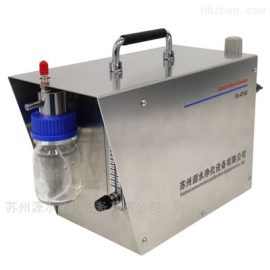Swiss Screw Machining: Precision and Efficiency in Small Part Manufacturing
,文章长度在1000字左右
html
Swiss Screw Machining: Precision and Efficiency in Small Part Manufacturing
Swiss screw machining, also known as Swiss turning or Swiss-style lathe machining, is a highly specialized manufacturing process designed to produce small, precision parts with exceptional accuracy and efficiency. Originating in Switzerland during the late 19th century for watchmaking, this technique has evolved into a cornerstone of modern manufacturing, particularly in industries requiring intricate components.
The Swiss Screw Machining Process
Unlike conventional lathes, Swiss screw machines utilize a sliding headstock and guide bushing system that provides unparalleled stability during machining. The workpiece is fed through the guide bushing while rotating tools perform cutting operations along its length. This unique approach offers several advantages:
- Reduced vibration and deflection for improved precision
- Ability to machine long, slender parts without sagging
- Simultaneous multi-axis operations for complex geometries
- Exceptional surface finishes and tight tolerances
Key Advantages of Swiss Machining
1. Unmatched Precision
Swiss machines routinely achieve tolerances within ±0.0002 inches (0.005mm), making them ideal for medical devices, aerospace components, and electronics where precision is paramount.
2. High Production Efficiency
The ability to perform multiple operations in a single setup significantly reduces cycle times. Modern CNC Swiss machines can complete complex parts in one chucking, eliminating secondary operations.
3. Material Versatility
These machines handle a wide range of materials including:
- Stainless steels and exotic alloys
- Titanium and other aerospace metals
- Plastics and engineered polymers
- Brass, copper, and other non-ferrous metals
4. Cost-Effectiveness for Small Parts
While initial setup may be more involved than conventional turning, Swiss machining becomes extremely cost-effective for high-volume production of small, complex components due to reduced labor and material waste.
Applications Across Industries
Swiss screw machining has found applications in numerous critical industries:
Medical Device Manufacturing
The medical industry relies heavily on Swiss machining for surgical instruments, implants, and diagnostic equipment components requiring biocompatibility and extreme precision.
Aerospace and Defense
From fuel system components to avionics connectors, Swiss machines produce the high-strength, lightweight parts essential for aerospace applications.
Electronics and Microtechnology
The miniaturization trend in electronics has made Swiss machining indispensable for producing connectors, pins, and other micro-components.
Automotive
Keyword: Swiss Screw Machining
Fuel injection systems, transmission components, and sensor housings all benefit from the precision and repeatability of Swiss machining.
Modern Advancements in Swiss Technology
Contemporary Swiss screw machines incorporate cutting-edge technologies that enhance their capabilities:
- Multi-axis CNC control: Modern machines often feature 7 or more axes of motion for complex geometries
- Live tooling: Rotating tools enable milling, drilling, and tapping operations without removing the part
- Automated bar feeders: Allow for continuous operation with minimal operator intervention
- Advanced coolant systems


